Director – Wim Wenders – 1987 – Germany – Cert. PG – 128m
*****
Angels move around Berlin, watching over Berliners, until one of them sees a beautiful girl and decides he wants to become human and experience emotion for himself – out in cinemas on Friday, June 24th and playing on Film 4 from Wednesday, June 29th to Thursday, July 28th
This film is many things. It is, first and foremost, about angels, here captured in stunning black and white cinematography and represented as men moving invisibly among the population of Berlin, observing them, listening to their thoughts, hopes, fears and dreams, perhaps imparting some sort of spiritual comfort by a touch of the hand. And just as Henri Alekan’s camera photographs the actors playing angels, so too it photographs those Berliners they observe and comfort.
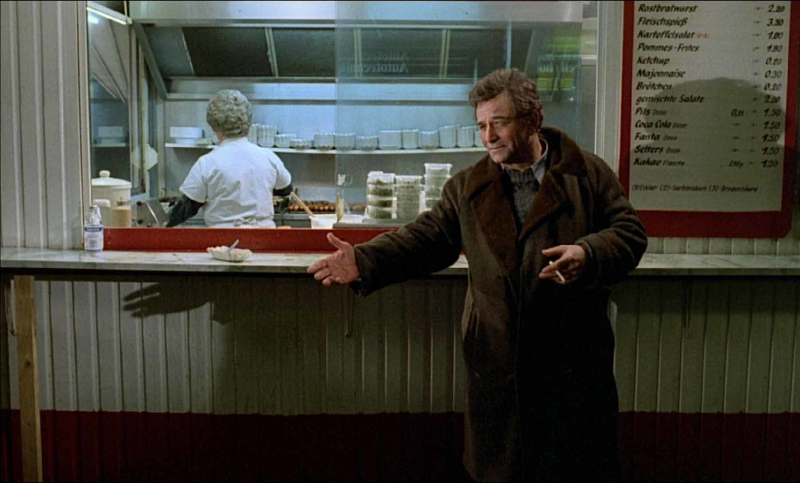
The iconic Hollywood actor Peter Falk – known to millions of TV viewers as the detective Columbo – plays himself playing a character on the set of a war film and hanging out between takes. The camera takes great pleasure in simply observing him doing what he does, for instance talking to an angel he can’t see (“I can’t see you, but I know you’re here”) which might be an attempt to communicate with invisible beings or might equally well be no more than an acting routine. Or trying on a seemingly innumerable series of hats with the wardrobe mistress trying to find the right one for his character.
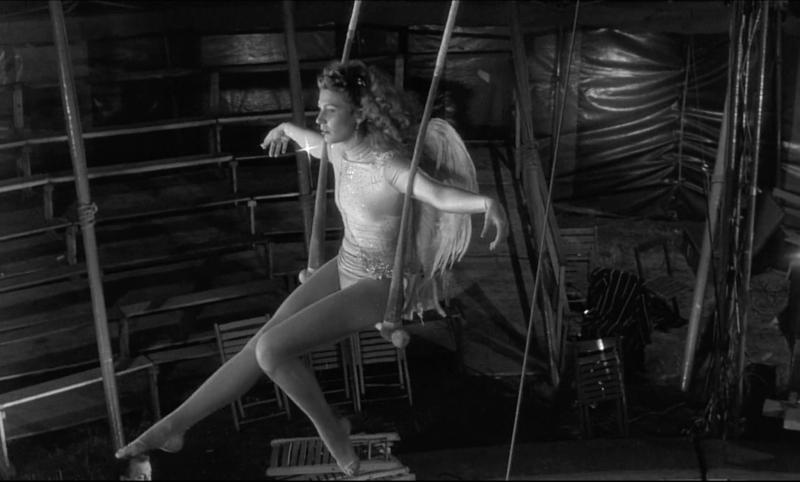
Although his presence and performance shows he would easily be capable of it, Falk is by no means the centre of the film, an honour which goes to Swiss-born, German-speaking Bruno Ganz playing an angel named Damiel who after observing French trapeze artist Marion (Solveig Dommartin) falls in love with her before she can see him and wants to become human to consummate the relationship. Flesh, mortality, physical sensation, these things are outside the angels’ experience.
This will involve leaving behind his fellow angels who include Cassiel (Otto Sander) but, as he will learn, he is not the first angel to take this one-way trip. Peter Falk will turn out to be one of the people who has gone this route ahead of him and will provide help in this brave new world. And the moment Damiel makes the change, the stunning black and white photography of the angels’ perception turns into very raw, dirty and human incarnate colour as if to contrast the ethereal nature of the angels’ existence with the raw immediacy of our own.
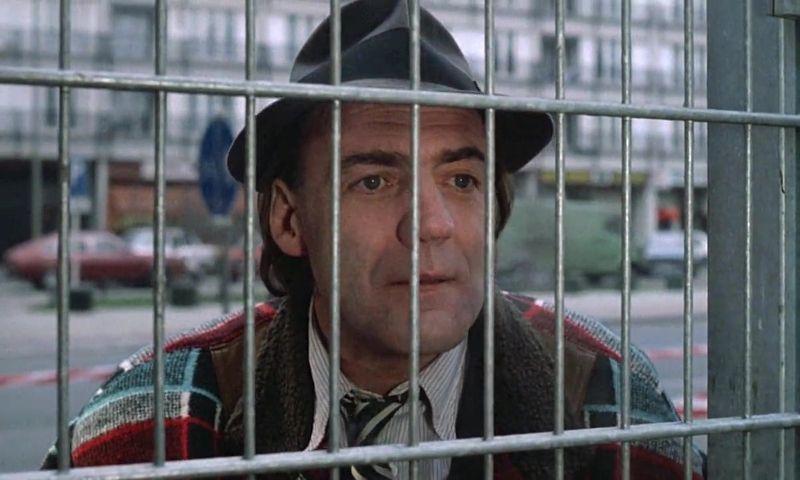
On another level, the film is about the pleasures of observation and photography, a curious marriage of observation and artifice, as fascinated by aerial shots of numerous parked cars as a gesture or a smile of a face and which look incredible in this brand new, 4K restoration. Library interiors, half demolished buildings, contemporary music gigs make up the tapestry of a city, placing the film alongside a whole tradition of films exploring the nature of cities such as Berlin, Symphony Of A Great City (Walter Ruttmann, 1927).
Berlin in 1987 was (is) divided by the Berlin Wall – which was to begin to be demolished two years after the film – with the garish graffiti adorning the Western side standing in marked contrast to the unadorned Eastern side. So the film also functions as a document of Berlin at a specific time and place, providing us with valuable historical, visual memory.
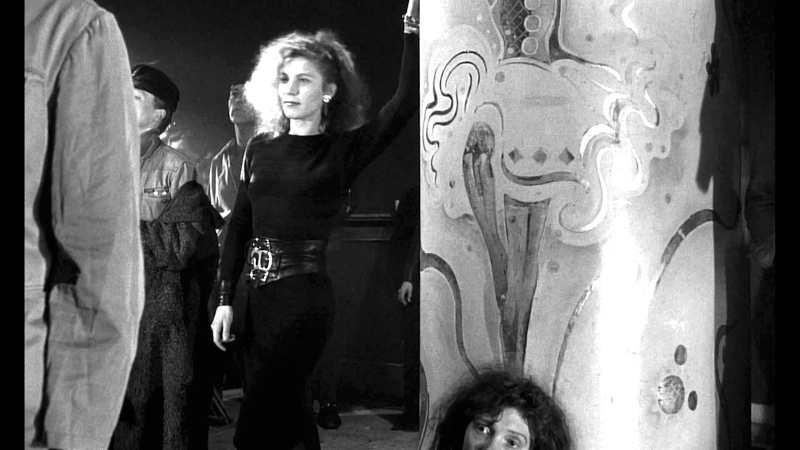
As all this happens, and we watch alongside the camera the actors doing what they do amidst all this, it becomes clear that the film is about people, individuals, and just how fascinating, wonderful and amazing they are, along with the spaces inside their heads in which they articulate ideas and attempt to make sense of their lives, their triumphs, their failings, and everything else, good and bad, about their existence. Actually, this extends to the actors playing the angels too: of course, they are humans playing angels, and thus just as compelling to watch as the rest of the cast. So perhaps this is also about people-watching.
Dommartin’s Marion is a trapeze artist in a circus about to close up for the season: it’s hard to imagine that watching her perform her skills in the big top for real could be any more inspiring than the representation that the camera captures and shows us here. It’s also perfectly understandable why an observer such as Cassiel might fall in love with her. She is however no mere distanced female object of male desire: like all the other characters here, Wenders presents her as a unique person with her own set of dreams, hopes and uncertainties. We watch her at gigs dancing to Crime And The City Solution and Nick Cave & The Bad Seeds, sequences which capture the pleasures of attending contemporary live music like few (if any) other films.
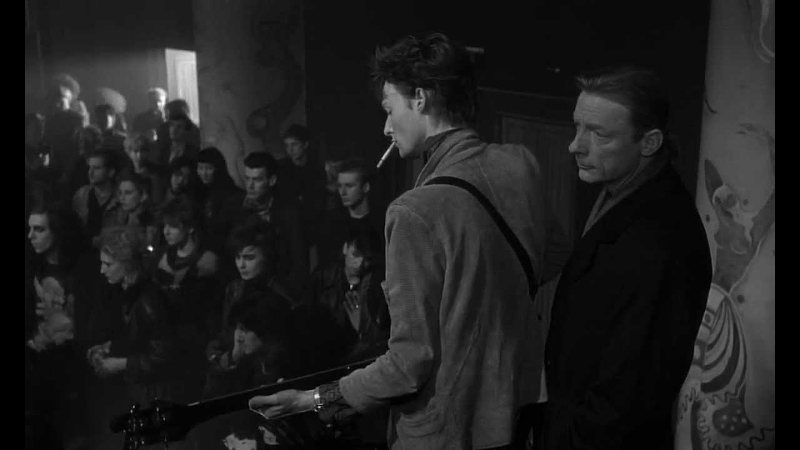
The film overall possesses a transcendent quality about what it means to be human, to be alive. People responded well to it when it first appeared in 1987, and the universal nature of its subject matter means that audiences familiar or unfamiliar with it today will likely have a similar response. It’s a marvellous film first time round and, for those who’ve already had the pleasure, it’s like being reunited with an always welcome, old friend. It remains a high point in director Wenders’ impressive career.
Tags: wings, desire, Berlin, Germany, Wim Wenders, angels, black and white, colour, invisible, population, people, observation, listening, thoughts, hopes, fears and dreams, spiritual, comfort, Hollywood, Peter Falk, Columbo, acting routine, communication, Henri Alekan, wardrobe mistress, hats, trapeze artist, flesh, mortality, physical sensation, incarnation, one-way trip, immediacy, photography, cinematography, aerial photography, library,\library interiors, half-demolished buildings, contemporary music gigs, contemporary music, gigs, document, historic, visual memory, Berlin Wall, East Berlin, West Berlin, people-watching, Crime And The City Solution, Nick Cave & The Bad Seeds, big top, transcendence, human existence, being human, experience, Swiss, French, American, actors, thoughts,
Wings Of Desire is out in cinemas in the UK on Friday, June 24th. Part of Kino Dreams the first UK retrospective of Wenders’ films in 15 years and the first chance for UK audiences to experience the 4K restorations of Wings of Desire and Kings of The Road in cinemas. Also and playing on Film 4 from Wednesday, June 29th to Thursday, July 28th.
Trailer:
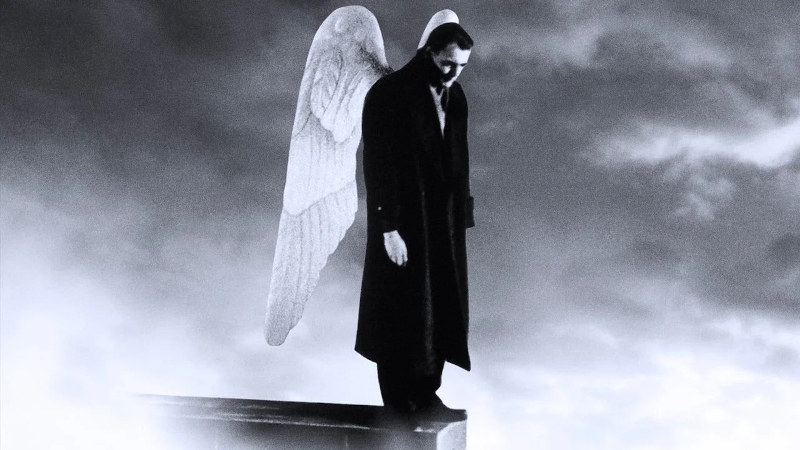
One reply on “Wings Of Desire
(Der Himmel
Über Berlin)”
It has been ages since I saw this, I had almost forgot about it prior to reading your review.
Tempted to see it again.